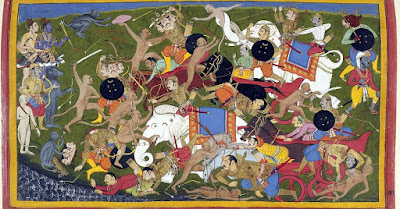MACHIAVELLIANISM
INTRODUCTION
Machiavellianism is
"the employment of cunning and duplicity in statecraft or in general
conduct".
The word comes from the
Italian Renaissance diplomat and writer Niccolo Machiavelli, born in 1469, who
wrote Il Principe( The Prince).
Soon after its
publication in the 16th century, it saw infecting Northern European
politics. Having originated in Italy, it soon spread to France and the St.
Bartholomew's Day Massacre of 1572 in Paris is seen as the product of
Machiavellianism. The concept was greatly influenced by the Huguenot Innocent
Gentillet, who published his DiscourscontreMachievel in
1576.
DEPICTION OF
MACHIAVELLIANISM IN ART
The concept of
Machiavellianism was seized upon by many contemporaries. The English
Playwrights William Shakespeare and Christopher Marlowe were enthusiastic
proponents.
Shakespeare's
Gloucester, later Richard the Third, refers to Machiavelli in Henry the
Sixth Part Three.
In The Jew of
Malta (1589-90) Machiavel in person speaks the Prologue.
Marlowe's last
play, The Massacre at Paris (1593) takes the massacre as its
subject with the Duke of Guise and Catherine de' Medici.
IN PSYCHOLOGY
Machiavellianism is one
of the three personality traits referred to as the dark triad, along with
narcissism and psychopathy. Some social scientists describe it as a person's
ability to be unemotional leading to the detachment from conventional morality
and hence to deceive and manipulate others.


Comments
Post a Comment